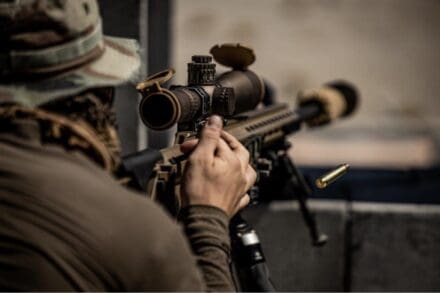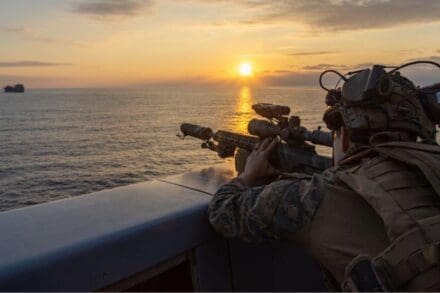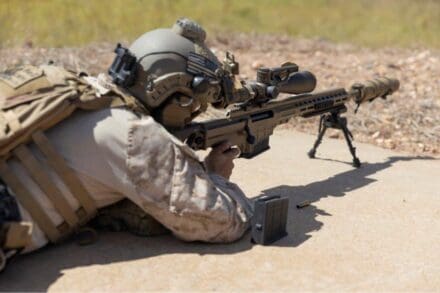Marine Corps Base Quantico, Va. —
Marine Corps Systems Command recently reached Fully Operational Capability (FOC) for the MK 22 Mod 0 Advanced Sniper Rifle (ASR). This milestone marks a critical step forward in modernizing the Marine Corps’ sniper capabilities of Reconnaissance and Infantry units.
“Fully Operational Capability is achieved when all the Infantry and Reconnaissance units, as well as MOS-producing schools, have been fielded to and new equipment training is completed,” stated Maj Michael Billings, Weapons Team Lead, Marine Corps Systems Command.
The MK22 is more than just another rifle; it results from a partnership across the Department of Defense. Initially a Special Operations Command contract, the MK22 entered Marine Corps hands through the “Special Operations Forces (SOF) to service” transition process, allowing the U.S. Army to take responsibility for contracting actions.
“This collaboration accelerated the entire program, pushing us to FOC a full year ahead of schedule—a significant win for the Marine Corps and our warfighters,” explained Billings.

The rifle offers caliber conversion options, allowing Marines to tailor their loadout to missions. With barrels chambered in 7.62mm, .300 Norma Magnum, and .338 Norma Magnum, Marines can engage targets more precisely and at greater ranges.
“The M317 Precision Day Optic (PDO) paired with the MKk22 is a game changer. The M317 PDO is a 7-35 Variable Powered Optic, a huge leap in capability over our previous sniper systems like the M40 and MK13,” explained Brian Nelson, MK22 project officer, Marine Corps Systems Command.
Each rifle kit has three barrels, a hard and soft carrying case, a comprehensive cleaning and tool kit, a sound suppressor, the M317 PDO, and its accompanying scope mount. Reconnaissance and Infantry units also receive a .300 Winchester Magnum barrel, a scout sniper tripod kit, a laser filter unit, and an anti-reflection device.

“Marines like the ability to conduct caliber conversions at their level and the fact that they only have one rifle instead of the two it replaced,” emphasized Kevin Marion, a Logistics Management Specialist with Marine Corps Systems Command. “This shift improves operational efficiency, reduces the logistical burden on units, and lightens the individual Marine’s load.”
One of the MK22’s most significant benefits is its sustainability. Maintenance times are reduced, and repairs can now be conducted at the organizational level—unlike the old sniper rifles, which required more time-consuming evacuation to an intermediate level for repairs. Should a barrel fail, the MK22 can still be employed in a different caliber, maintaining the unit’s operational readiness.
“[Replacing a barrel] was impossible with previous systems, where a condemned barrel would render the weapon unusable, directly affecting mission readiness,” said Nelson. “Now, the MK22 ensures that even if a barrel fails, Marines are still mission ready.”
With the MK22’s enhanced capabilities, Marines are more lethal, more versatile, and better equipped to handle the challenges of modern warfare and equipped for the future fight.
By: Morgan Blackstock, Office of Public Affairs and Communications, Marine Corps Systems Command
Read the full article here


